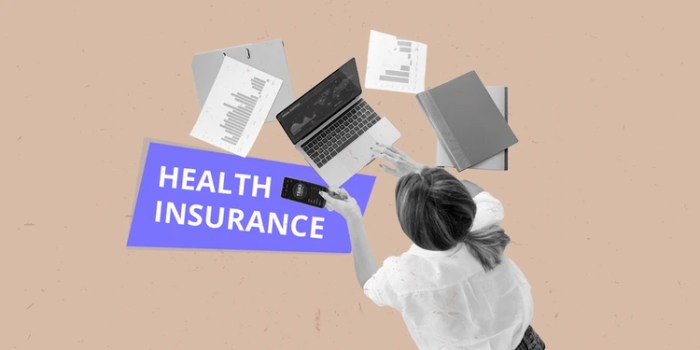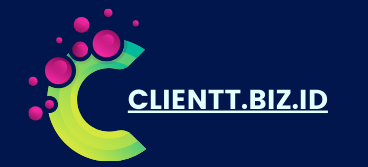What is the best insurance for people who are self-employed? It’s a question that many freelancers, entrepreneurs, and gig workers ask themselves. The answer, of course, depends on your specific needs and circumstances, but there are some essential types of insurance that every self-employed person should consider.
Being your own boss comes with a lot of freedom, but it also means you’re responsible for your own health, finances, and business. Unlike traditional employees, you don’t have an employer providing benefits like health insurance, disability coverage, or retirement plans.
So, you need to take the initiative and secure your own safety net.
Understanding Self-Employment and Insurance Needs

Being self-employed means you’re the boss, but it also means you’re responsible for your own insurance. Unlike traditional employees, you don’t have an employer to provide health insurance, retirement plans, or other benefits. This makes it crucial to understand the unique insurance needs of self-employed individuals.
Risks Faced by Self-Employed Individuals
Self-employment comes with a unique set of risks that traditional employees don’t face. These risks can impact your finances, your health, and even your ability to continue working.
- Income Fluctuation:Self-employed individuals often experience income fluctuations, making it challenging to budget and plan for the future. This can make it difficult to afford essential insurance coverage.
- Health Insurance Costs:Self-employed individuals are responsible for paying for their own health insurance, which can be expensive, especially if you have pre-existing conditions.
- Liability Risks:Depending on your profession, you may face liability risks, such as being sued for negligence or professional misconduct. Having adequate liability insurance is essential to protect your assets.
- Retirement Planning:Self-employed individuals need to plan for their own retirement, which can be a daunting task. Without employer-sponsored retirement plans, you’re responsible for setting up and funding your own retirement savings.
- Disability Coverage:If you become disabled and unable to work, you’ll lose your income. Disability insurance can provide financial support during these difficult times.
Importance of Insurance Coverage for Self-Employed Individuals
Having adequate insurance coverage is crucial for self-employed individuals. It provides a safety net in case of unexpected events and helps protect your financial well-being.
“Insurance is a tool that helps you manage risk and protect yourself from financial hardship.”
Insurance can cover a wide range of risks, including:
- Health insuranceprotects you from high medical expenses.
- Liability insuranceprotects you from lawsuits and claims of negligence.
- Disability insuranceprovides income replacement if you become disabled.
- Property insuranceprotects your business property from damage or loss.
- Business interruption insurancecovers lost income if your business is forced to shut down due to an unexpected event.
Essential Insurance Types for Self-Employed Individuals: What Is The Best Insurance For People Who Are Self-employed?

As a self-employed individual, you’re responsible for your own financial well-being, which means you need to carefully consider your insurance needs. You are your own boss, but you also have to wear many hats. That includes protecting yourself and your business from potential risks.
Types of Insurance
To ensure your financial stability and peace of mind, it’s crucial to understand the essential insurance types that can safeguard your self-employment journey. Here’s a breakdown of the key insurance types for self-employed individuals:
| Insurance Type | Coverage | Benefits | Importance for Self-Employed Individuals |
|---|---|---|---|
| Health Insurance | Medical expenses, hospitalization, and prescription drugs | Protects against high medical costs, ensuring access to healthcare without financial strain | Essential for self-employed individuals as they are responsible for their own health insurance. It provides peace of mind and financial security in case of illness or injury. |
| Disability Insurance | Income replacement if you become unable to work due to illness or injury | Provides financial stability during a period of disability, ensuring you can cover essential expenses | Crucial for self-employed individuals as their income is directly tied to their ability to work. It protects against loss of income due to unexpected events. |
| Liability Insurance | Protects against financial losses arising from claims of negligence or wrongdoing | Covers legal expenses, settlements, and judgments in case of lawsuits | Essential for self-employed individuals as they are personally liable for any business-related negligence or accidents. It safeguards their assets and financial well-being. |
| Property Insurance | Covers damage or loss to business property, including equipment, inventory, and buildings | Protects against financial losses due to fire, theft, natural disasters, or other unforeseen events | Important for self-employed individuals who own or lease business property. It safeguards their assets and ensures business continuity in case of property damage. |
| Workers’ Compensation Insurance | Covers medical expenses and lost wages for employees injured on the job | Protects against financial losses due to employee injuries, ensuring compliance with legal requirements | Required by law in most states for employers, even if you are a sole proprietor. It safeguards your business from legal liabilities and financial burdens. |
| Business Interruption Insurance | Provides income replacement during periods of business interruption due to covered events | Helps maintain cash flow and business operations during disruptions, ensuring financial stability | Important for self-employed individuals as business interruptions can significantly impact their income. It protects against financial losses and ensures business continuity. |
| Life Insurance | Provides a death benefit to beneficiaries, typically covering debts and funeral expenses | Offers financial security to loved ones in case of death, ensuring their financial well-being | Important for self-employed individuals as it provides financial protection for their family and business in the event of their passing. |
Health Insurance Options for Self-Employed Individuals

As a self-employed individual, you’re responsible for securing your own health insurance. Unlike employees, you don’t have access to employer-sponsored plans, so you’ll need to explore different options to find the best fit for your needs and budget.
Understanding the Affordable Care Act (ACA) Marketplace
The Affordable Care Act (ACA) Marketplace, also known as HealthCare.gov, provides a platform for individuals and families to compare and purchase health insurance plans. The ACA Marketplace is particularly relevant to self-employed individuals as it offers subsidies and tax credits to help offset the cost of health insurance premiums.
The ACA Marketplace offers a variety of plans from different insurance companies, each with varying coverage levels, deductibles, and copayments. You can use the Marketplace’s online tools to compare plans based on your individual needs and budget. The Marketplace also offers enrollment assistance through certified brokers and agents who can guide you through the process.
Comparing Health Insurance Options, What is the best insurance for people who are self-employed?
- Individual Health Insurance:This is the most common type of health insurance for self-employed individuals. You purchase the plan directly from an insurance company, and you are responsible for paying the premiums yourself. Individual plans offer a wide range of coverage options, allowing you to tailor the plan to your specific needs and budget.
- Group Health Insurance:While not as common for self-employed individuals, you might be eligible for group health insurance through professional organizations or associations. These plans often offer lower premiums than individual plans due to the larger pool of insured individuals.
- Health Savings Accounts (HSAs):HSAs are tax-advantaged savings accounts that can be used to pay for healthcare expenses. To be eligible for an HSA, you must have a high-deductible health insurance plan (HDHP). HSAs offer several benefits, including tax deductions on contributions and tax-free withdrawals for qualified medical expenses.
Advantages and Disadvantages of Health Insurance Plans
Individual Health Insurance
- Advantages:
- Wide range of plans and coverage options to choose from.
- Flexibility to customize the plan to your specific needs and budget.
- May be eligible for tax credits and subsidies through the ACA Marketplace.
- Disadvantages:
- Premiums can be higher than group plans.
- May have limited access to certain providers or specialists.
Group Health Insurance
- Advantages:
- Typically lower premiums than individual plans.
- May offer wider network of providers and specialists.
- Disadvantages:
- Limited availability, as eligibility depends on membership in a specific organization or association.
- Less flexibility in plan customization.
Health Savings Accounts (HSAs)
- Advantages:
- Tax-deductible contributions.
- Tax-free withdrawals for qualified medical expenses.
- Money in the HSA rolls over year to year.
- Disadvantages:
- Requires a high-deductible health insurance plan (HDHP).
- May have higher out-of-pocket costs in the short term.
Business Insurance for Self-Employed Individuals

Being self-employed comes with many perks, like being your own boss and setting your own hours. But it also comes with a lot of responsibility, including protecting yourself from potential risks. That’s where business insurance comes in! Business insurance is a must-have for self-employed individuals, as it provides financial protection against various unforeseen events that could jeopardize your livelihood.
Types of Business Insurance for Self-Employed Individuals
There are various types of business insurance policies available, each designed to cover specific risks. Understanding the different types and their coverage is crucial for selecting the right insurance for your needs.
- General Liability Insurance:This type of insurance protects you from financial losses resulting from claims of bodily injury, property damage, or personal injury caused by your business activities. For example, if a client trips and falls in your office, general liability insurance can cover the medical expenses and any legal costs associated with the incident.
- Professional Liability Insurance (E&O):Also known as errors and omissions insurance, this policy protects you from claims of negligence or errors in your professional services. If a client alleges that your work resulted in financial losses, professional liability insurance can cover legal fees and any settlements or judgments.
This is especially important for professionals like consultants, designers, and accountants.
- Product Liability Insurance:This insurance is crucial for businesses that manufacture or sell products. It protects you from claims of injuries or damages caused by defective products. For example, if a customer is injured by a product you sold, product liability insurance can cover the costs of medical expenses, legal fees, and product recalls.
- Property Insurance:This insurance covers damage or loss to your business property, including buildings, equipment, and inventory. It protects you from financial losses caused by fire, theft, vandalism, and other natural disasters. If your office is damaged by a fire, property insurance can cover the costs of repairs or replacement.
- Workers’ Compensation Insurance:This insurance is mandatory in most states for businesses with employees. It covers medical expenses, lost wages, and other benefits for employees who are injured or become ill on the job. As a self-employed individual, you might not need workers’ compensation insurance unless you have employees.
However, you may want to consider purchasing it if you are working in a hazardous environment or if you have a high risk of injury.
- Cyber Liability Insurance:In today’s digital age, cyberattacks are a significant threat to businesses. Cyber liability insurance can protect you from financial losses caused by data breaches, cyber extortion, and other cyber threats. This insurance can cover costs associated with data recovery, legal expenses, and regulatory fines.
Importance of Business Insurance for Self-Employed Individuals
Business insurance is essential for self-employed individuals because it provides a safety net against financial risks. Without insurance, you could be personally liable for significant financial losses, which could jeopardize your business and personal finances. Here are some key reasons why business insurance is important:
- Financial Protection:Business insurance can protect you from significant financial losses caused by lawsuits, accidents, property damage, and other unforeseen events. This protection is crucial for maintaining your business’s financial stability and preventing personal bankruptcy.
- Peace of Mind:Knowing that you have insurance coverage can give you peace of mind and allow you to focus on running your business without constantly worrying about potential risks. This peace of mind can boost your productivity and overall well-being.
- Legal Compliance:Some types of insurance, such as workers’ compensation insurance, are mandatory in many states for businesses with employees. Failure to comply with these legal requirements can result in hefty fines and penalties.
- Enhanced Business Reputation:Having business insurance can enhance your business’s reputation and build trust with clients and partners. It shows that you are responsible and prepared to handle potential risks, which can be a significant advantage in a competitive market.
Illustrative Scenario
Imagine you are a freelance graphic designer. You have a client who hires you to design their website. During the design process, you accidentally use a copyrighted image without permission. The client gets sued for copyright infringement, and you are named as a defendant in the lawsuit.
Without professional liability insurance, you could be personally liable for significant legal fees, settlements, and damages. However, if you have professional liability insurance, the policy will cover the legal expenses and any settlements or judgments against you, protecting you from financial ruin.
Summary
Navigating the world of insurance as a self-employed individual can feel overwhelming, but it doesn’t have to be. By understanding your unique needs and exploring the various options available, you can find the right coverage to protect yourself, your business, and your family.
Don’t hesitate to reach out to a financial advisor or insurance broker for personalized guidance and make sure you’re fully covered for the journey ahead.
Questions and Answers
What are the most common risks faced by self-employed individuals?
Self-employed individuals face a unique set of risks, including financial instability, lack of health insurance, liability for business-related incidents, and the potential for income loss due to disability or death.
How can I find the best insurance quotes for my needs?
Start by identifying your specific insurance needs and then use online comparison websites or consult with an insurance broker to get quotes from different providers. Be sure to compare coverage, premiums, and customer reviews before making a decision.
What are some resources for self-employed individuals seeking insurance information?
The Small Business Administration (SBA) website, the National Federation of Independent Business (NFIB), and various insurance company websites offer valuable resources and information for self-employed individuals. You can also find helpful articles and advice from financial publications and online blogs.
